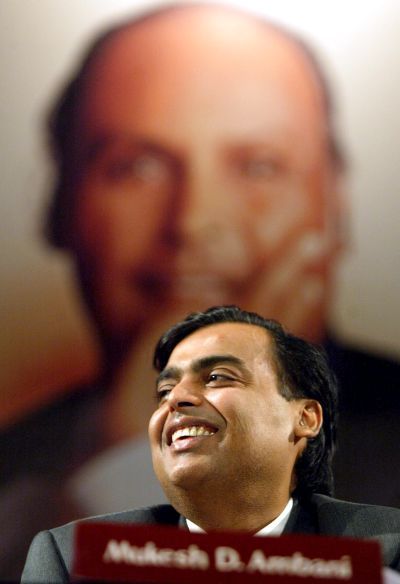I ndia is poised for another even more "stupendous leap" in its growth trajectory, Reliance Industries Chairman Mukesh Ambani has said but underlined that economic expansion has happened only after the government loosened its "regulatory shackles".
ndia is poised for another even more "stupendous leap" in its growth trajectory, Reliance Industries Chairman Mukesh Ambani has said but underlined that economic expansion has happened only after the government loosened its "regulatory shackles".
"I believe India today is potentially poised for another even more stupendous leap on its upward trajectory. India's relative weight in the global economy and in the world affairs in general is bound to grow," Ambani wrote in an essay titled 'Making the next leap' in the book 'Reimagining India: Unlocking the potential of Asia's next superpower' edited by global consulting firm McKinsey.
Ambani stressed that the actions India should take to move forward should be sweeping and comprehensive and not timid.
"As the old India gives way more completely to the new India, a certain amount of flux will be generated. However the good developments will far outnumber others," he said.
The billionaire industrialist noted that economic empowerment for the hundreds of millions of excluded Indians and jobs for the nation's youth can be achieved only through concerted action by the citizens, businesses and government working together.
"That is one of the great lessons of the past two decades, when the economy expanded at a rapid pace only after the government loosened its regulatory shackles," he said.
He said India is projected to overtake China by 2030 as the most populous country in the world with the third-largest economy in US dollar terms.
Also working to India's advantage is that it is a very young nation, with nearly two-thirds of its people below the age of 35.
"The possibilities are breathtaking. The most exciting prospect of all is the impetus that could come from tapping the surging aspirations of the 700-800 million Indians who remain excluded from India's success story," Ambani said.
"If we manage to bring this segment of the population into the economic mainstream, the result will be an enormous enhancement in India's economic and non-economic power as we generate equality in access despite inequality in income," he added.
Citing the example of the education sector, Ambani said reduced government control and centralisation, especially in higher education could make a major difference in providing excellent education for all Indians.
He said agriculture too offers many opportunities to unleash the creativity of Indian people. "No grassroots or economic progress can be made without addressing this sector given the huge swath of population it employs," he said.
"I refuse to accept that Indian farmers are deficient in any way compared to those from other economies. We must streamline the regulatory requirements for public-private partnership in agriculture."
Ambani stressed that much more can be done to encourage broader dissemination of information about market conditions and new farming methods. There is also need for much greater investment in basic agricultural infrastructure such as irrigation systems and cold chains.











 © 2025
© 2025